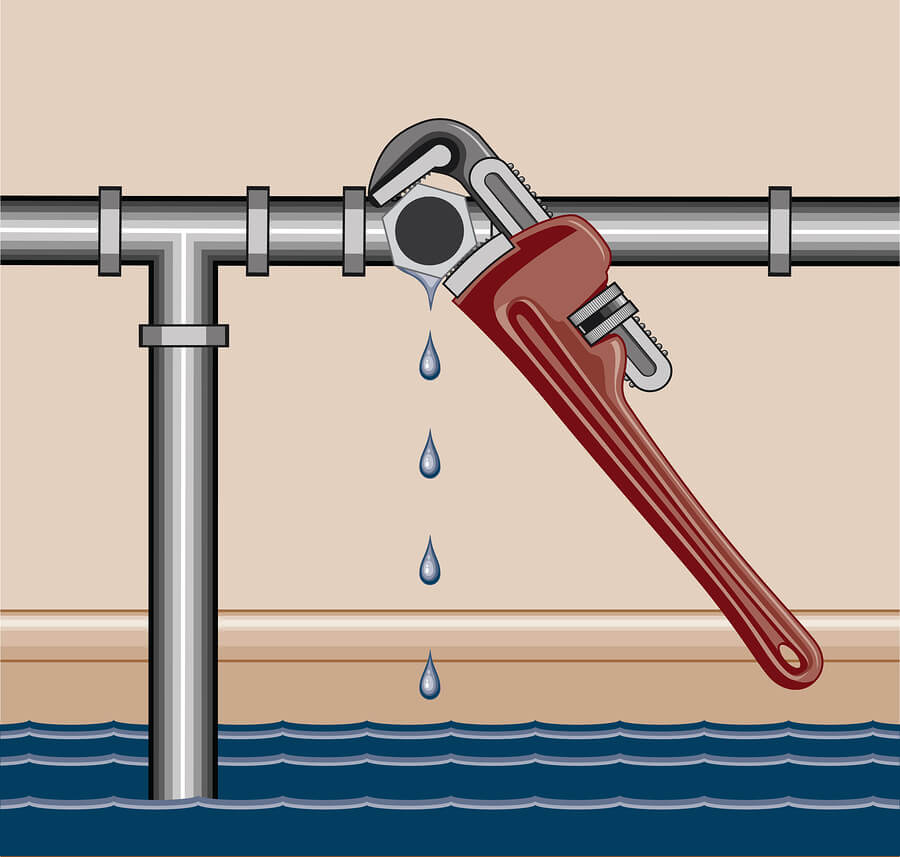The Residential Common Frequent Leak Factors: Investigation
The Residential Common Frequent Leak Factors: Investigation
Blog Article
On this page down the page you can discover some wonderful data with regards to How to detect water leaks in your home.

Leaks not just trigger waste of water yet can likewise create unnecessary damages to your home and also promote undesirable natural growth. By comprehending as well as looking for daily circumstances that trigger leaks, you can shield your home from future leakages and also unnecessary damages.
Instant temperature level adjustments.
Extreme temperature changes in our pipes can trigger them to increase and also get all of a sudden. This expansion and contraction might create splits in the pipelines, particularly if the temperature are below freezing. If you maintained an eye on exactly how your plumbing works, it would certainly be best. The visibility of the previously mentioned conditions often indicates a high danger.
Corroded water supply
As time passes by, your plumbing system ages and also corrosion such as corrosion might start eating away the pipes. This might be the reason for staining or bending on your water pipes. This asks for an examination with your plumber immediately. Take into consideration changing the pipelines considering that they are at a higher danger of rust than the newer versions if our plumbing system is old.
Defective Pipeline Joints
Pipeline joints can degrade over time, resulting in water leaks. If you have loud pipes that make ticking or banging noises, especially when the hot water is transformed on, your pipeline joints are probably under a great deal of stress.
Intruding origins
A lot of water leakages begin outside the residence rather than inside it. You may observe damp spots or sinkholes in your backyard, and also that could mean that tree roots are invading water lines creating water to permeate out.
Poor Water Connectors
Sometimes, a leakage can be brought on by loose hose pipes and pipelines that supply your home appliances. More often than not, shifting is what creates the loosened water Connections. You may locate when it comes to a cleaning device, a tube may spring a leakage as a result of trembling throughout the spin cycle. In case of a water links leak, you may notice water running straight from the supply line or puddles around your devices.
Blocked Drains
Blocked drains might be irritating and inconveniencing, but they can sometimes wind up creating an overflow bring about burst pipelines. Keep eliminating any products that might decrease your drains that might obstruct them to stay clear of such aggravations.
All the above are root causes of leaks but not all water leakages result from plumbing leaks; some leakages might originate from roofing system leakages. All leaks must be fixed promptly to prevent water damage.
Leakages not only create waste of water however can additionally trigger unnecessary damages to your home as well as advertise undesirable organic growth. By looking and recognizing for day-to-day situations that trigger leaks, you can shield your house from future leaks as well as unneeded damages. Today, we will look at six leakage creates that might be creating your pipelines to trickle.
At times, a leak can be caused by loosened hose pipes and pipes that provide your devices. In situation of a water connections leakage, you may observe water running straight from the supply line or puddles around your appliances.
How To Check For Water Leak In Your Home
How To Check for Leaks
The average household's leaks can account for nearly 10,000 gallons of water wasted every year and ten percent of homes have leaks that waste 90 gallons or more per day. Common types of leaks found in the home are worn toilet flappers, dripping faucets, and other leaking valves. These types of leaks are often easy to fix, requiring only a few tools and hardware that can pay for themselves in water savings. Fixing easily corrected household water leaks can save homeowners about 10 percent on their water bills.
To check for leaks in your home, you first need to determine whether you're wasting water and then identify the source of the leak. Here are some tips for finding leaks:
Take a look at your water usage during a colder month, such as January or February. If a family of four exceeds 12,000 gallons per month, there are serious leaks.
Check your water meter before and after a two-hour period when no water is being used. If the meter changes at all, you probably have a leak.
Identify toilet leaks by placing a drop of food coloring in the toilet tank. If any color shows up in the bowl after 10 minutes, you have a leak. (Be sure to flush immediately after the experiment to avoid staining the tank.)
Examine faucet gaskets and pipe fittings for any water on the outside of the pipe to check for surface leaks.
Undetected water leaks can happen without the home or business owner even realizing. If you suspect a water leak, but not able to find the source. It is time to contact a professional water leak detection service, The Leak Doctor.
How To Find a Water Leak In Your Home
https://www.leakdoctor.com/blog/How-To-Check-For-Water-Leak-In-Your-Home_AE197.html

We are very interested in Common Water Leaks In House and I am assuming you enjoyed reading the entire entry. Sharing is nice. Helping people is fun. Thank you so much for taking the time to read it.
Ready to assist! Report this page